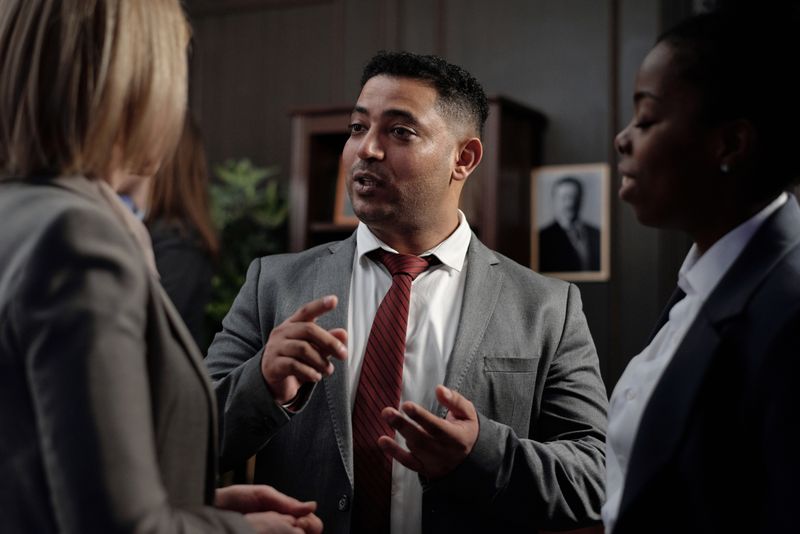Politics Federal Voice to Parliament: Dutton challenges Albanese to cancel referendum as opening for postal votes nears
Prime Minister Anthony Albanese has rejected a proposal to cancel the October 14 referendum on an Indigenous Voice, despite a slump in support for the change. The proposal to establish an Indigenous Voice has faced significant opposition and speculation on whether the referendum should proceed as planned.
Debate over the October 14 Referendum
The Yes vote for the Voice has fallen from 46 to 43 per cent over the past month, sparking debate on whether to change the date of the referendum. Opposition Leader Peter Dutton has urged Albanese to withdraw the proposal before it is too late, arguing that it will not bring unity to the nation.
Albanese‘s Response
Albanese, however, remains firm in his commitment to proceed with the referendum as scheduled. He mocked Dutton‘s proposal to hold a second referendum if the Voice is rejected in October, accusing him of wanting to prolong the debate indefinitely.
Postal Voting Timetable
The Australian Electoral Commission (AEC) has opened postal voting on the Voice referendum, accepting applications from 6pm on Monday. The deadline for postal vote applications is October 11. Voters have until September 18 to enrol to vote in time for the referendum.
Early voting at hundreds of voting centres is set to commence on October 2 in Victoria, Tasmania, Western Australia, and the Northern Territory. In New South Wales, Queensland, South Australia, and the Australian Capital Territory, early voting will begin on October 3 due to public holidays. Thousands of polling places will be open from 8am to 6pm on October 14 for voters to cast their ballots.
Concerns over Voter Turnout
The resolve Political Monitor, published on Monday, indicates that only 86 per cent of eligible voters are likely to cast a ballot, with 73 per cent saying they are “very” likely to do so. The survey also found that 70 per cent of Yes voters are very likely to vote, compared to 75 per cent of No voters.
Jim Reed, the Director of Resolve, suggests that the lower enthusiasm among Yes voters may be due to a perceived “rebel frustration” among No voters who are determined to have their say. To offset this disadvantage, Reed advises the Yes campaign to mobilize their supporters and motivate them to get enrolled and vote.
The Battle Ahead for the Yes Campaign
Dean Parkin, the director of Yes 23, admits that there is an “absolute battle” ahead but believes that a large group of undecided voters could still be persuaded to support the Voice. Parkin also highlights the importance of addressing the frustration shared by voters and making a case for real change.
Editorial and Advice
This referendum on the Indigenous Voice in Parliament is facing significant challenges. The drop in support for the Yes vote highlights the need for greater mobilization and persuasion on the part of the Yes campaign. Additionally, concerns over voter turnout signal the importance of inspiring voters to participate in this crucial democratic process.
While the opposition and critics of the Voice proposal may argue for the cancellation of the referendum, it is essential to respect the democratic will of the people. Regardless of the outcome, the referendum provides an opportunity for Australians to have their say and engage in a meaningful conversation about Indigenous representation in our democracy.
It is important for both the Yes and No campaigns to focus on presenting their arguments clearly and concisely, addressing any misinformation or confusion surrounding the proposal. The Yes campaign, in particular, should make an effort to tap into the softness and persuadable nature of undecided voters, highlighting the need for change and the potential positive impact of the Indigenous Voice.
In the coming weeks leading up to the referendum, it is crucial for all Australians to educate themselves about the proposed Indigenous Voice and its potential implications for our democracy. This is an opportunity for us to examine and reflect upon our nation’s commitment to inclusivity and representation.
Ultimately, the decision on whether to support the Indigenous Voice in Parliament rests with the voters. It is their voices that will shape the future of our democracy and determine how we acknowledge and include Indigenous Australians in our political institutions. Let us approach this referendum with open minds and a genuine commitment to equality and fairness.

<< photo by Romina Ordóñez >>
The image is for illustrative purposes only and does not depict the actual situation.
You might want to read !
- “Rethinking Democracy: Postal and Early Voting Timelines for Voice Referendum Revealed”
- “An Unsettling Revelation: Karen Andrews Exposes Harassment by Male Colleague”
- Masked Singer Australia 2023: Controversial Winner Announcement Sparks Outrage
- “Biden’s Diplomatic Discourse: A Collaborative Exchange with Vietnamese President Vo Van …”
- Condoleezza Rice’s Lost September 11 Speech: Uncovering the Unspoken Account
- “Voice Referendum: Key Dates for Postal and Early Votes Revealed”
- Postal Vote Applications Open for the Voice Referendum as Australians Make Their Voices Heard
- “Goodreads Book Cancellations: Unraveling the Controversial Practice”
- London authorities capture and detain wanted terror suspect Daniel Khalife: A major breakthrough in anti-terrorism efforts
- “No More Finger Pointing: Western Leaders Shift Stance on Condemning Russia for Ukraine War”
- Personal Health Dilemma Sidelines Saints Forward from Elimination Final
- “Morrison’s China Dilemma: Can Albanese’s Support for the Philippines Strengthen Australia’s Position in the South China Sea?”
- Qantas and CEO Alan Joyce: Navigating Turbulent Skies Down Under




